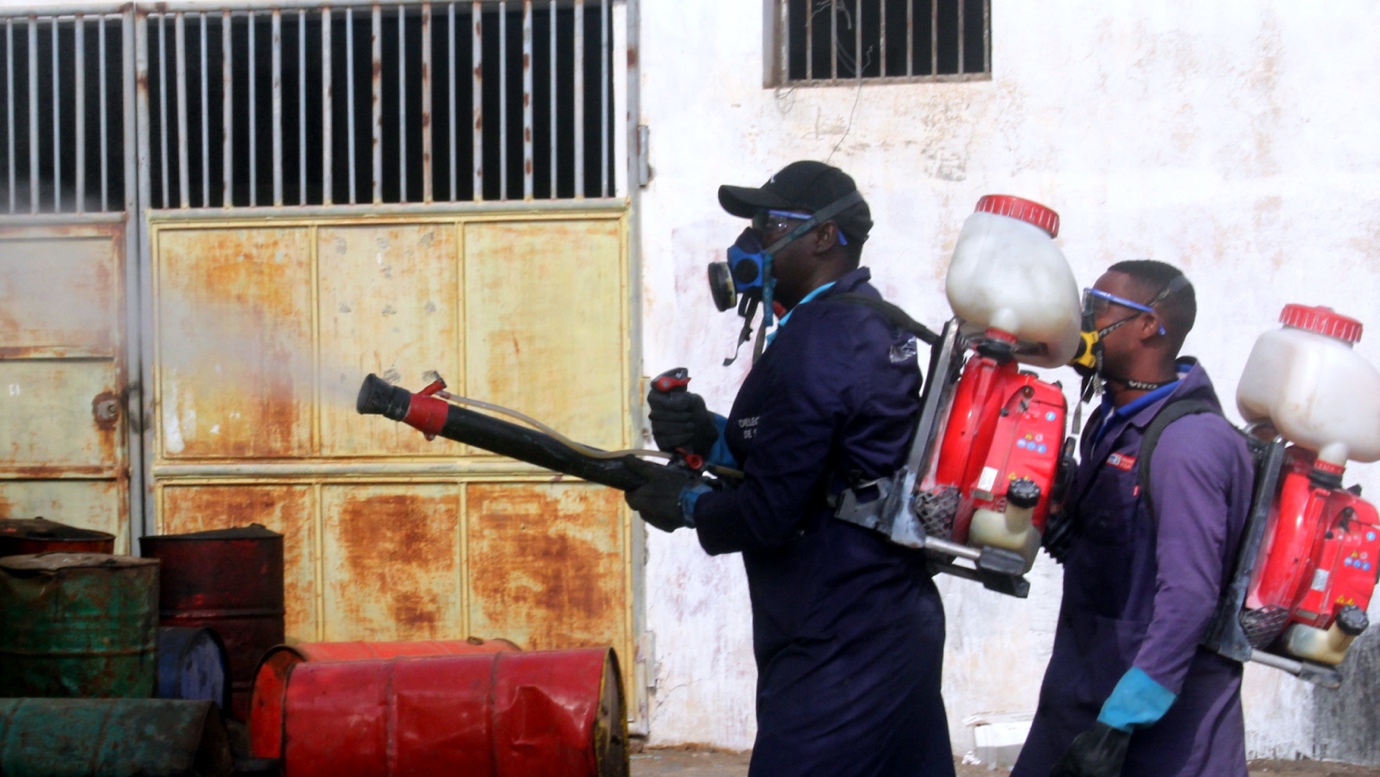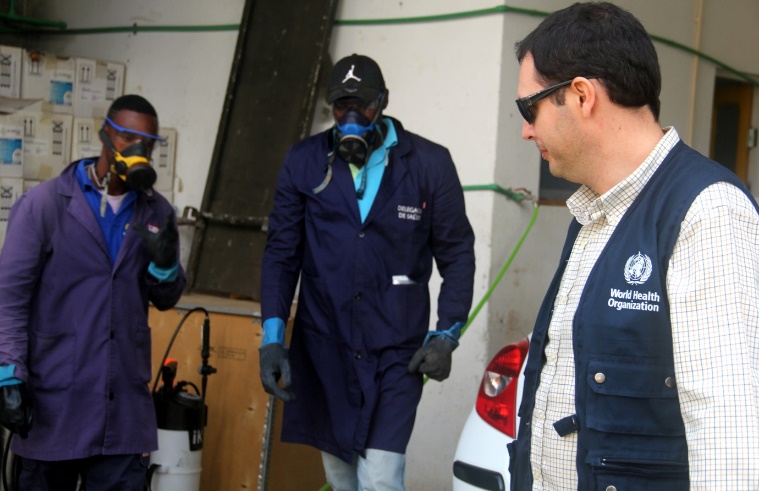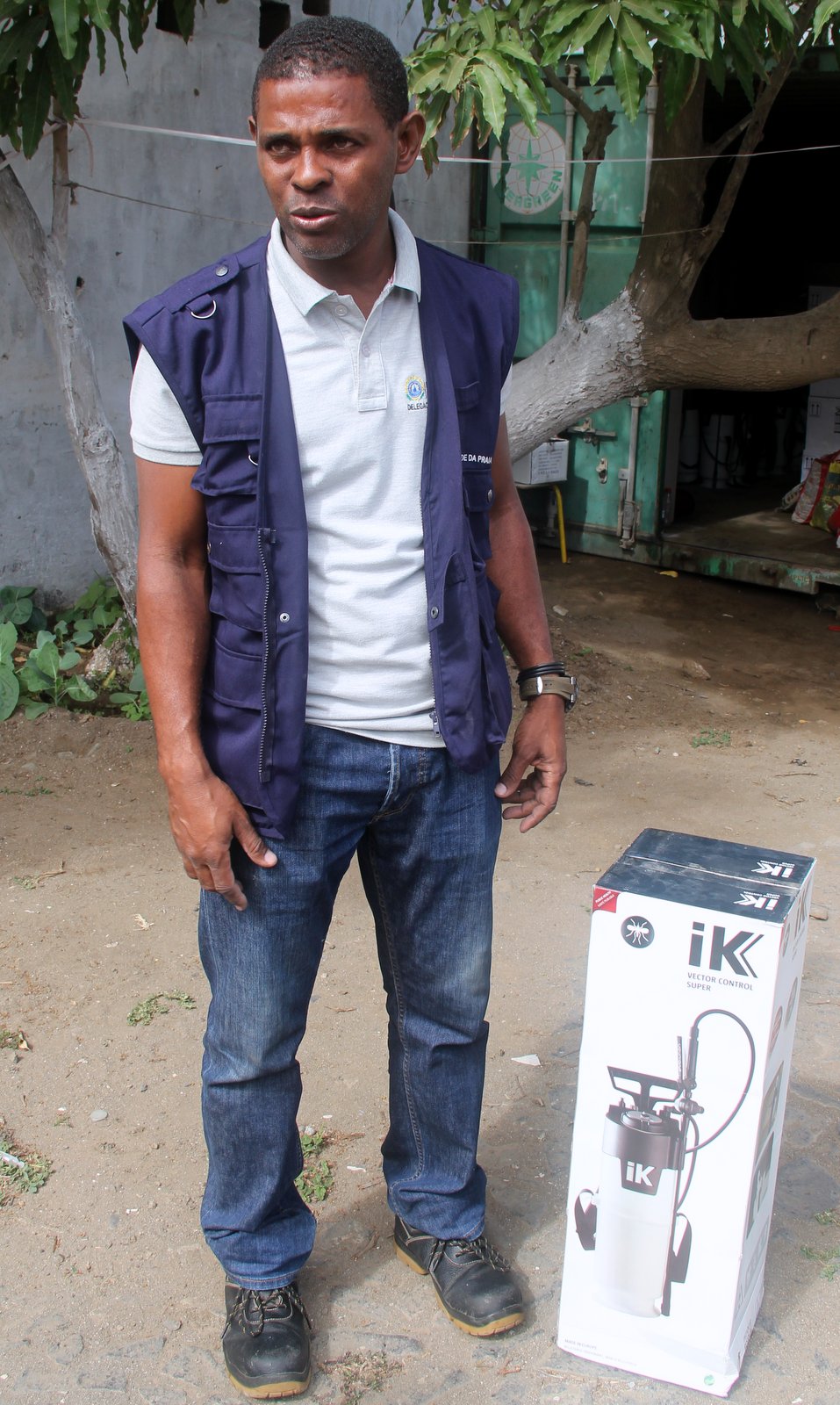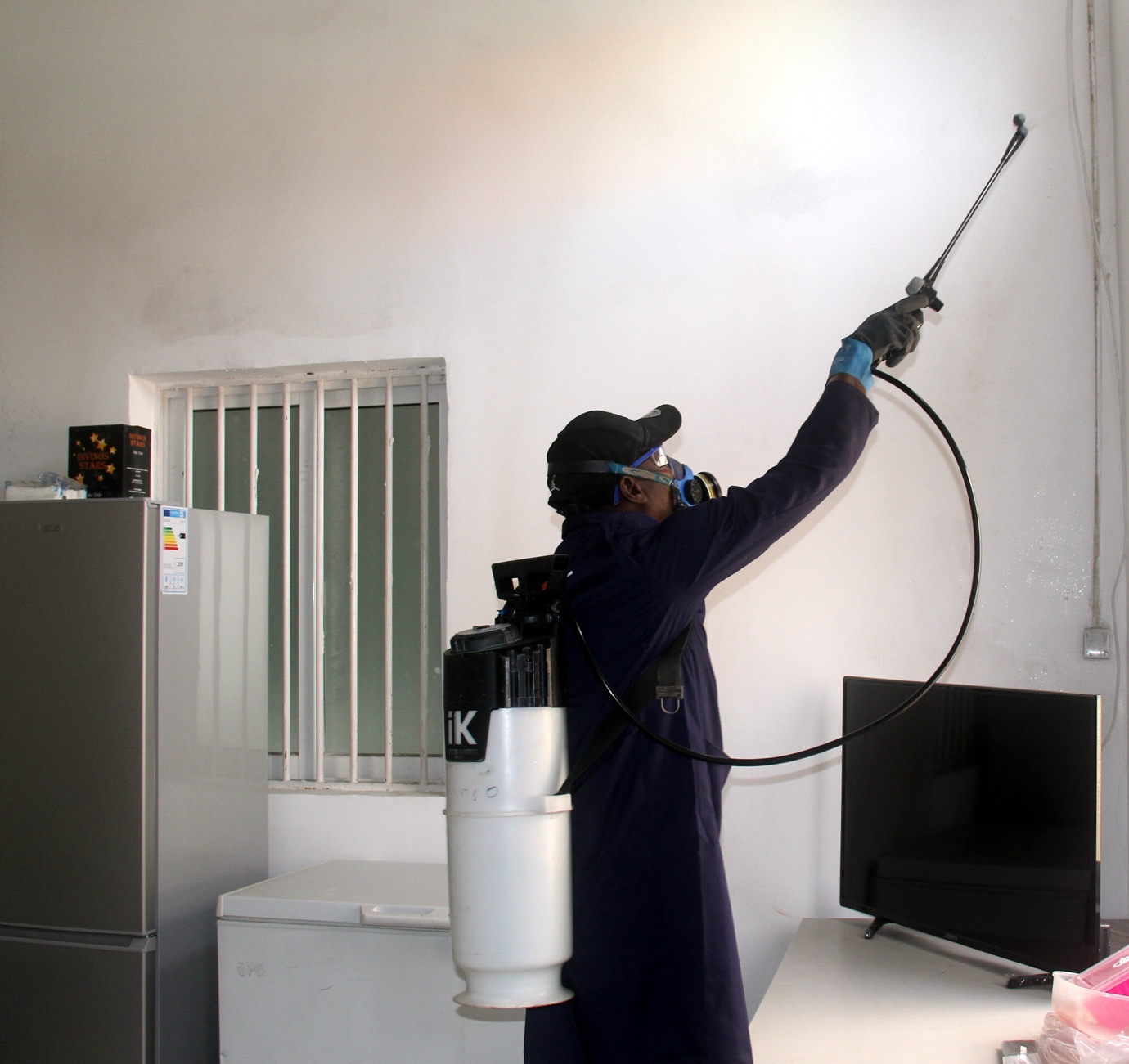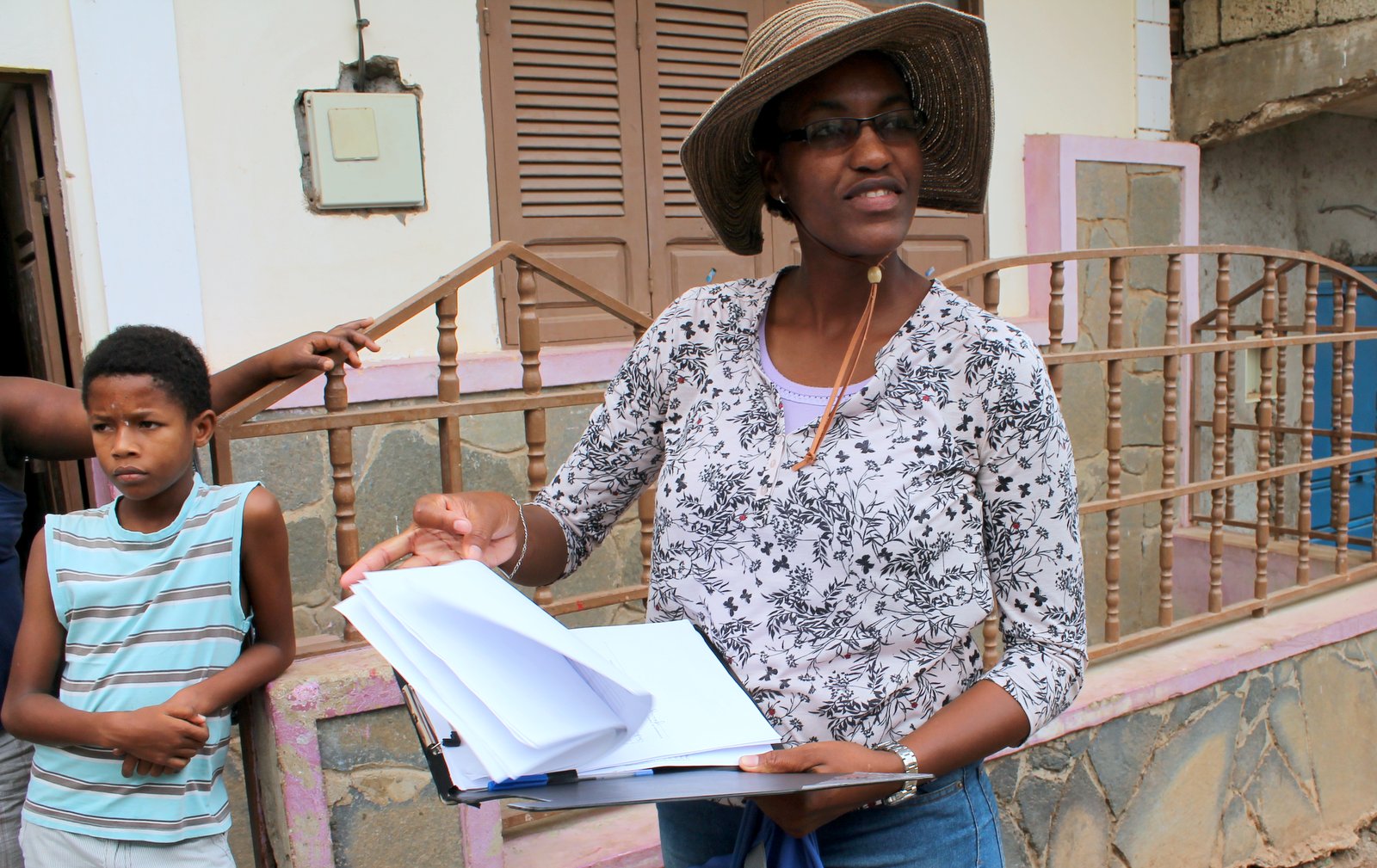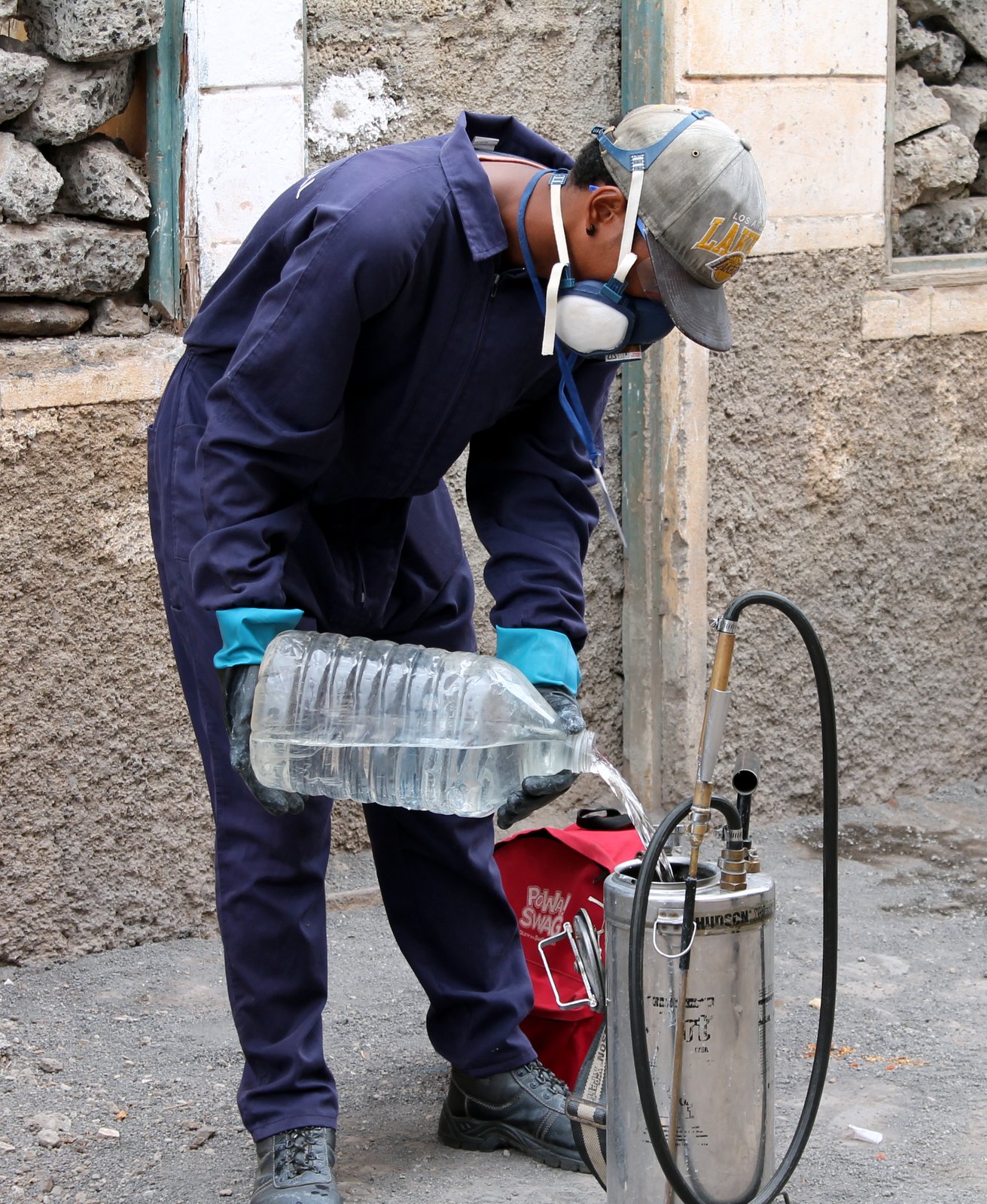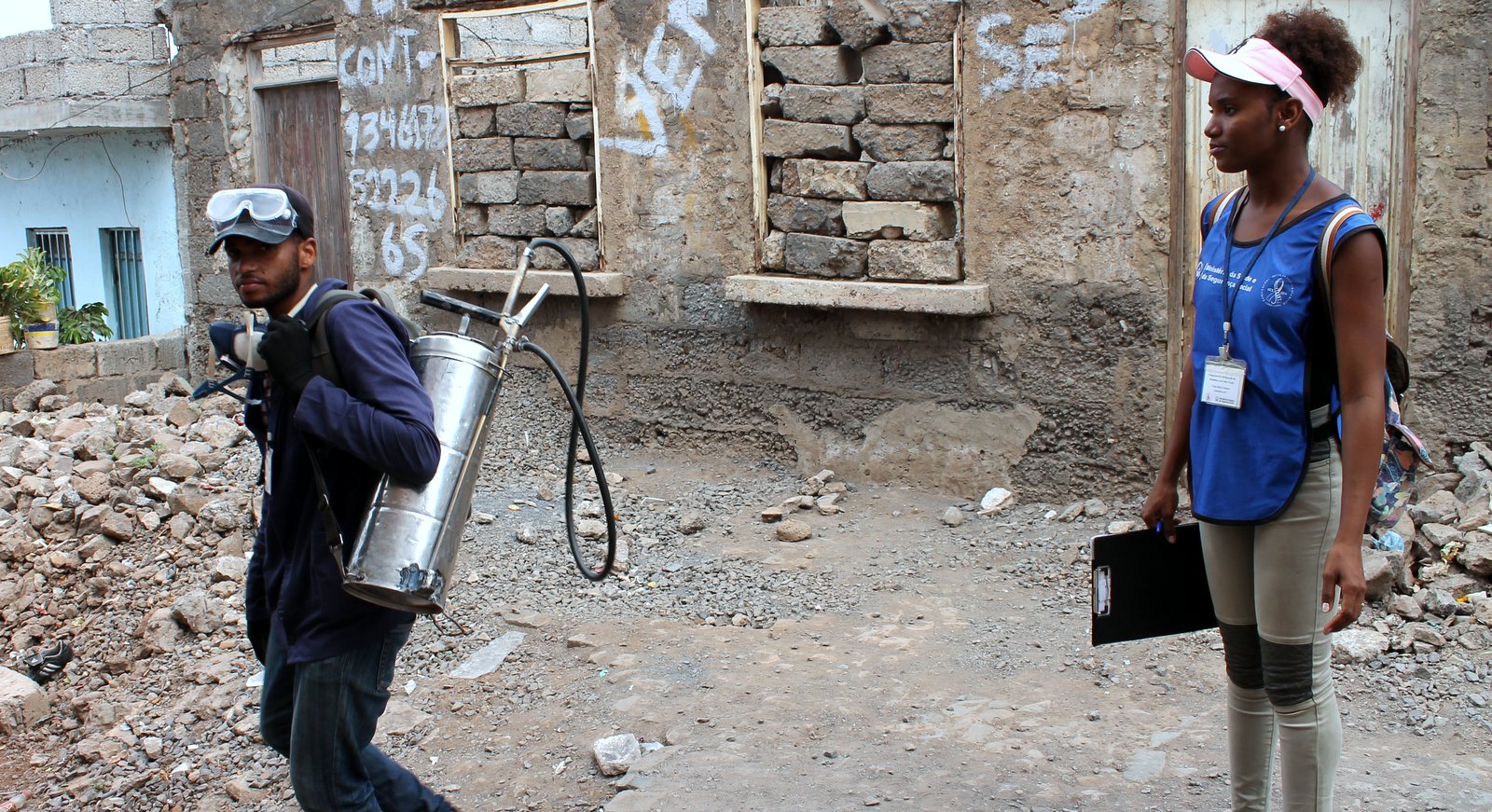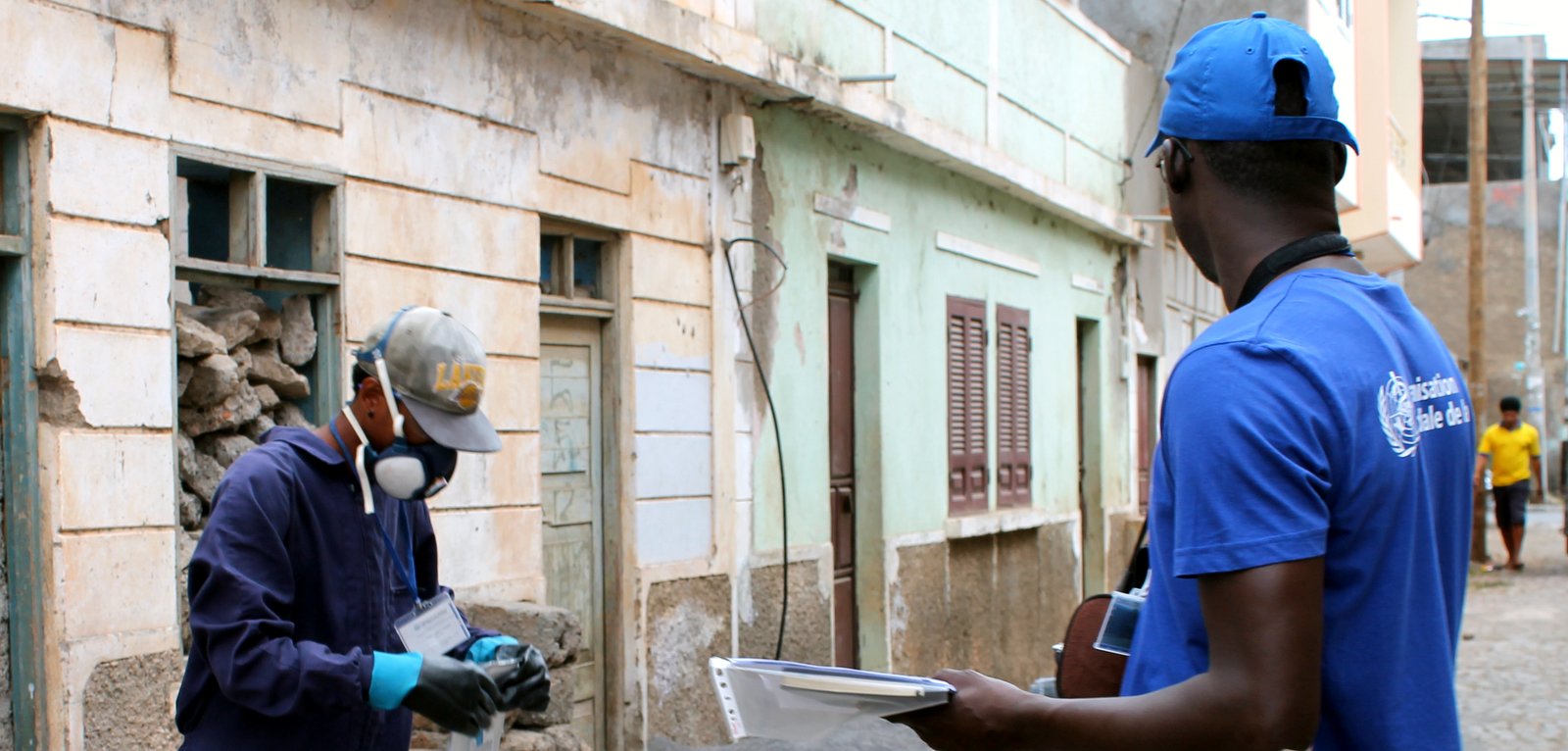Humans vs. mosquitos: Communities are taking the upper hand in Cabo Verde
Preparing for potential Zika outbreaks and other vector-borne diseases in Cabo Verde means vigilantly hitting the mosquitos where they breed and interrupting their human contact. The small island state experienced Africa’s first Zika outbreak in 2015.
Leaving no corner uncovered.
Credits: WHO/Antonio Palazuelos Prieto
The World Health Organization (WHO) is helping the government and communities fight back with several strategies that include the massive yet strategic spraying of insecticide—leaving no corner uncovered.
“This is a thoughtful job, and it is worthy.”
Credits: WHO/Antonio Palazuelos Prieto
“This is a thoughtful job, and it is worthy. The local agents feel motivated as they see communities engaged,” says António da Veiga, a community supervisor hired by the Ministry of Health for the vector fight programme. He has amassed a swarm of community “agents” vigilant on going after breeding sites, eggs and larvae, especially in the most vulnerable neighbourhoods of Praia, the country’s capital city. The agents are volunteers who receive a daily stipend. Their commitment to proper procedure, he says, makes a difference for the well-being of communities.
“We have to follow all procedures of the manual when we spray so its effectiveness and safety are assured,” stresses da Veiga.
“Our agents are very committed.”
Credits: WHO/Antonio Palazuelos Prieto
“Our agents are very committed, and they are keen to raise awareness in order to engage the communities in this mission. This is critical. I have attended several trainings on vector-control strategies organized by the Ministry of Health, with experts from the World Health Organization coming from other countries in Africa where they have large experience in fighting mosquitos. They always highlight the importance of the community engagement,” explains da Veiga.
“The only way we have to reduce the risk is to block the chain of transmission.”
Credits: WHO/Antonio Palazuelos Prieto
Jaelsa Moreira is also a supervisor of the field teams for indoor residual spraying in Praia. Hired by the Ministry of Health, she has been managing vector-control strategies since 2011, working with community leaders and health workers.
She can’t emphasize enough the importance of meticulous spraying: “The anti-vector fight is fundamental for a country like Cabo Verde, where the risk of outbreaks and epidemics by mosquito-transmitted diseases are continual. We cannot stop people’s movements, so the only way we have to reduce the risk is to block the chain of transmission of the disease, keeping a low density of mosquitoes in all islands, so the risk of outbreaks is reduced to a minimum.”
Preparedness and emergency response are now national priorities.
Credits: WHO/Antonio Palazuelos Prieto
The Government of Cabo Verde has targeted the elimination of vector-borne diseases, including malaria by 2020. Having experienced a variety of outbreaks, from dengue in 2009, Zika in 2015 and malaria in 2017, preparedness and emergency response are now national priorities.
The Zika outbreak affected four of the country's nine islands.
Credits: WHO/Antonio Palazuelos Prieto
The Zika outbreak affected four of the country’s nine islands, leading to more than 7 000 suspected cases (or 1.5% of the national population) and more than 500 confirmed cases, including nine cases of microcephaly in newborn babies.
No new cases of Zika have been reported.
Credits: WHO/Antonio Palazuelos Prieto
WHO immediately reacted to the Government’s request for emergency-response support to help strengthen the preparedness and response plan to fight the Zika virus outbreak (with nearly US$ 1 million in funding from the African Development Bank). Since the launch of that support, which entails the ongoing community vigilance in spraying breeding sites, no new cases of Zika have been reported.



